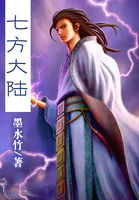Versification in a dead language is an exotic, a far-fetched, costly, sickly, imitation of that which elsewhere may be found in healthful and spontaneous perfection. The soils on which this rarity flourishes are in general as ill suited to the production of vigorous native poetry as the flower-pots of a hot-house to the growth of oaks. That the author of the Paradise Lost should have written the Epistle to Manso was truly wonderful. Never before were such marked originality and such exquisite, mimicry found together. Indeed in all the Latin poems of Milton the artificial manner indispensable to such works is admirably preserved, while, at the same time, his genius gives to them a peculiar charm, an air of nobleness and freedom, which distinguishes them from all other writings of the same class.
They remind us of the amusements of those angelic warriors who composed the cohort of Gabriel:
"About him exercised heroic games The unarmed youth of heaven. But o'er their heads Celestial armoury, shields, helms, and spears Hang high, with diamond flaming, and with gold."
We cannot look upon the sportive exercises for which the genius of Milton ungirds itself, without catching a glimpse of the gorgeous and terrible panoply which it is accustomed to wear. The strength of his imagination triumphed over every obstacle. So intense and ardent was the fire of his mind, that it not only was not suffocated beneath the weight of fuel, but penetrated the whole superincumbent mass with its own heat and radiance.
It is not our intention to attempt anything like a complete examination of the poetry of Milton. The public has long been agreed as to the merit of the most remarkable passages, the incomparable harmony of the numbers, and the excellence of that style, which no rival has been able to equal, and no parodist to degrade, which displays in their highest perfection the idiomatic powers of the English tongue, and to which every ancient and every modern language has contributed something of grace, of energy, or of music. In the vast field of criticism on which we are entering, innumerable reapers have already put their sickles.
Yet the harvest is so abundant that the negligent search of a straggling gleaner may be rewarded with a sheaf.
The most striking characteristic of the poetry of Milton is the extreme remoteness of the associations by means of which it acts on the reader. Its effect is produced, not so much by what it expresses, as by what it suggests; not so much by the ideas which it directly conveys, as by other ideas which are connected with them. He electrifies the mind through conductors. The most unimaginative man must understand the Iliad. Homer gives him no choice, and requires from him no exertion, but takes the whole upon himself, and sets the images in so clear a light, that it is impossible to be blind to them. The works of Milton cannot be comprehended or enjoyed, unless the mind of the reader co-operate with that of the writer. He does not paint a finished picture, or play for a mere passive listener. He sketches, and leaves others to fill up the outline. He strikes the keynote, and expects his hearer to make out the melody.
We often hear of the magical influence of poetry. The expression in general means nothing: but, applied to the writings of Milton, it is most appropriate. His poetry acts like an incantation. Its merit lies less in its obvious meaning than in its occult power.
There would seem, at first sight, to be no more in his words than in other words. But they are words of enchantment. No sooner are they pronounced, than the past is present and the distant near.
New forms of beauty start at once into existence, and all the burial-places of the memory give up their dead. Change the structure of the sentence; substitute one synonym for another, and the whole effect is destroyed. The spell loses its power: and he who should then hope to conjure with it would find himself as much mistaken as Cassim in the Arabian tale, when he stood crying, "Open Wheat," "Open Barley," to the door which obeyed no sound but "Open Sesame." The miserable failure of Dryden in his attempt to translate into his own diction some parts of the Paradise Lost, is a remarkable instance of this.
In support of these observations we may remark, that scarcely any passages in the poems of Milton are more generally known or more frequently repeated than those which are little more than muster-rolls of names. They are not always more appropriate or more melodious than other names. Every one of them is the first link in a long chain of associated ideas. Like the dwelling-place of our infancy revisited in manhood, like the song of our country heard in a strange land, they produce upon us an effect wholly independent of their intrinsic value. One transports us back to a remote period of history. Another places us among the novel scenes avid manners of a distant region. A third evokes all the dear classical recollections of childhood, the schoolroom, the dog-eared Virgil, the holiday, and the prize. A fourth brings before us the splendid phantoms of chivalrous romance, the trophied lists, the embroidered housings, the quaint devices, the haunted forests, the enchanted gardens, the achievements of enamoured knights, and the smiles of rescued princesses.
In none of the works of Milton is his peculiar manner more happily displayed than in the Allegro and the Penseroso. It is impossible to conceive that the mechanism of language can be brought to a more exquisite degree of perfection. These poems differ from others, as attar of roses differs from ordinary rose water, the close packed essence from the thin diluted mixture.
They are indeed not so much poems, as collections of hints, from each of which the reader is to make out a poem for himself. Every epithet is a text for a stanza.
The Comus and the Samson Agonistes are works which, though of very different merit, offer some marked points of resemblance.















